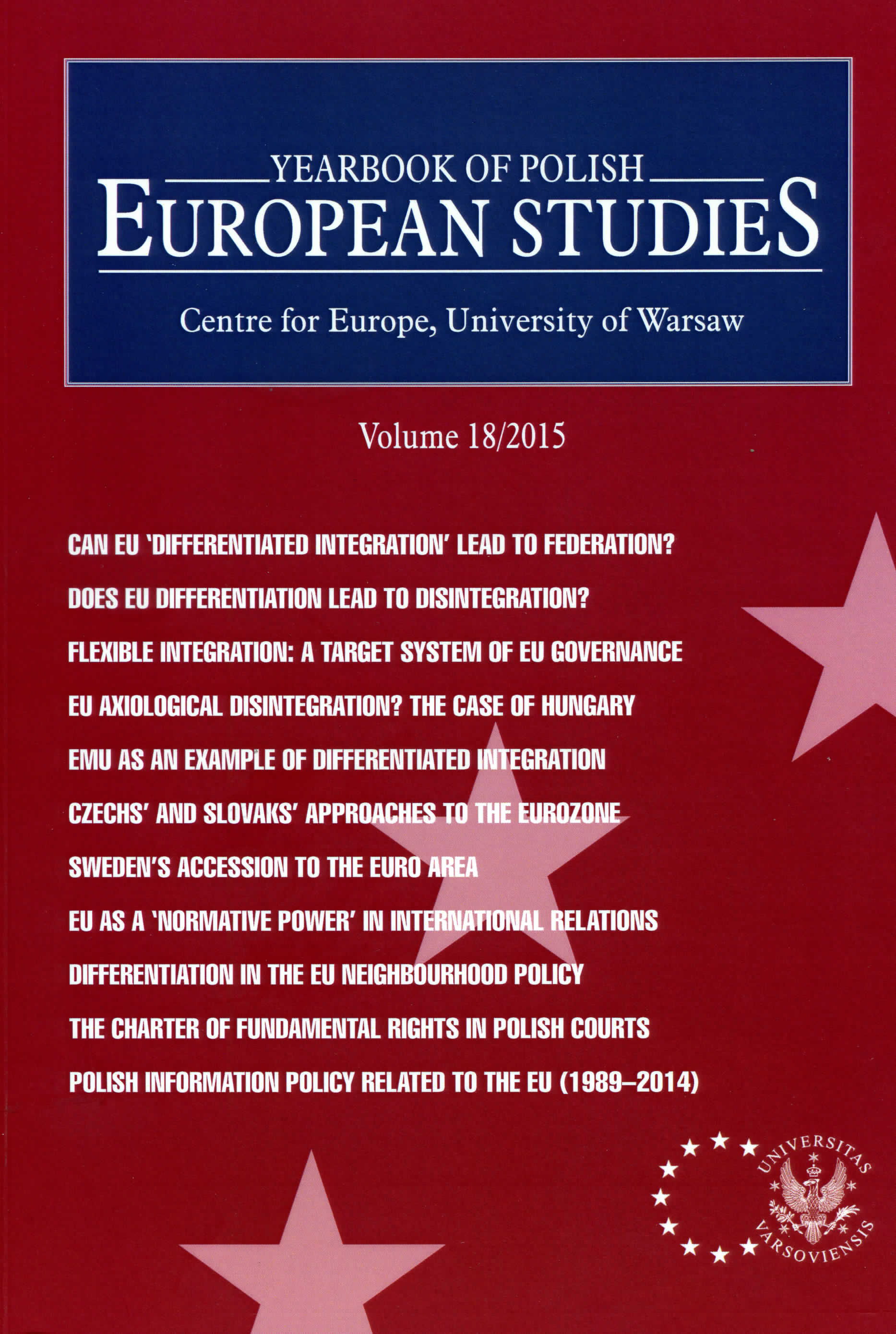Differentiated Integration and the Future of Europe. Debate in Poland
Differentiated Integration and the Future of Europe. Debate in Poland
Author(s): Agnieszka K. CianciaraSubject(s): Politics / Political Sciences, Politics, EU-Approach / EU-Accession / EU-Development
Published by: Centrum Europejskie Uniwersytetu Warszawskiego
Keywords: Euro zone; differentiated integration; EU accession; Polish euro membership
Summary/Abstract: Differentiated integration among EU Member States can result from both the widening and deepening of the integration process. The Member States that adhered to the EU in 2004 and 2007 have so far been subjected to differentiation as a consequence of the enlargement (i.e. as ‘new’ Member States). However, the case of Poland shows that concerns over sovereignty and identity, as well as a growing unwillingness to transfer further competences to the EU level, might also play an important role in the positions of the various Member States of Central Europe vis-à-vis differentiation. Following Poland’s accession to the EU, its political elites early on voiced common concerns about the establishment of a ‘super state’ during the crisis about the future of Europe and treaty change. Since the commencement of the economic crisis in the EU and the change in focus (i.e. on the euro zone), the major political parties in Poland have begun to voice quite diverse and opposing positions. Hence, it is worth exploring the current debate in light of the previous one, looking for patterns of both continuity and change. This paper is based on a thorough examination of the Polish debate on differentiated integration which developed during the euro zone crisis and has accelerated since the Polish presidency in 2011. The main objective is to analyse core elements of the debate among the Polish elite, with particular focus on the future of the euro zone and Poland’s possible euro membership. To this end, positions and statements of the government, major political forces and think-tanks have been analysed. As a result, three elements are highlighted: 1) the dual discursive strategy of the Civic Platform government; 2) the highly divergent approaches to differentiation among the major political parties; 3) the increasing probability that Poland will stay outside the euro zone on a long-term/quasi-permanent basis.
Journal: Yearbook of Polish European Studies
- Issue Year: 2014
- Issue No: 17
- Page Range: 167-189
- Page Count: 23
- Language: English

